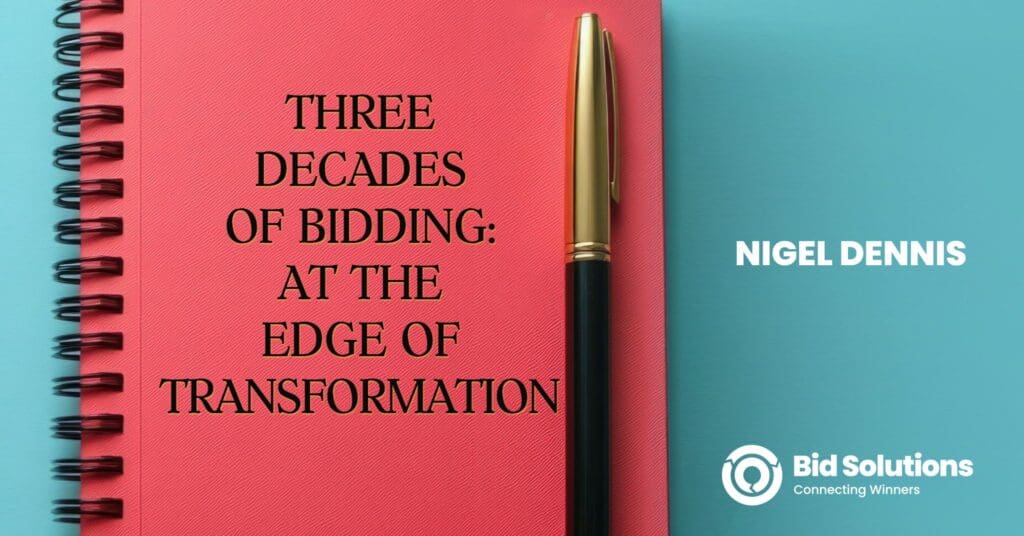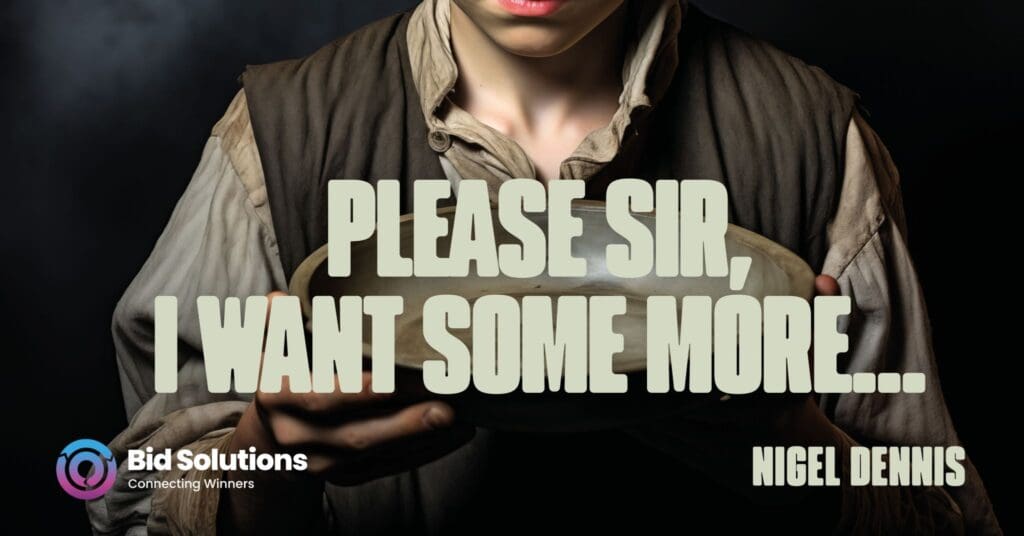Strong stories sell.
Every day we make personal buying decisions based on stories. At the supermarket, I always find myself reaching for Paul Newman’s salad dressing. The product has a strong story: it was founded by a beloved leading man from Hollywood’s Golden Age who has donated all the profits to charity since 1982.
The story woven into Newman’s salad dressing connects with my personal values – I like knowing I’m supporting a charitable cause. So if I’m going to buy salad dressing, I’ll choose Newman’s.
Strong stories define the difference
While the Newman’s example illustrates the power of an effective mass market narrative, the principle of using story telling to sell applies equally to tendering, but at a more focussed level.
A winning tender response must offer a compelling solution to your individual buyer’s problem. But what if your solution is similar in nature and price to that of your competitors? If you give a buyer no reason to compare options on anything other than price, then that’s exactly what they’ll do.
This is where a strong strategic narrative can make all the difference.
Applying a strategic narrative to a bidding context
In his Harvard Business Review article How to Build a Strategic Narrative, Mark Bonchek (2016) states that “the context of the narrative must be a human, not an institutional, relationship. People want to get a sense for your company as if it were a person. Human relationships require reciprocity and authenticity” (para 9).
Strategic narratives persuade by authentically engaging with buyers as individuals with specific needs. Tenderers who want to give their submissions an edge over their competitors should bear the following three things in mind:
- Remember that your evaluators are human beings. To persuade them, connect with them on a human level. Rather than bidding as “Company X”, think of your company as a corporate persona. Use language such as “us” and “we” to persuade.
- The story you’re telling about your offer will mean nothing if it’s all about you. It must speak directly to your client’s motivators, fears and values. It must also be presented as a cohesive, and reasoned narrative.
- Your proposal must feel authentic. Tap into the unique qualities that distinguish you and your offer from likely competitors. When these differentiators are the ones that also matter to the client, they become your unique discriminators. These unique discriminators matter most to your client, providing the most powerful elements of your authentic story.
- Remember that your evaluators are human beings. To persuade them, connect with them on a human level. Rather than bidding as “Company X”, think of your company as a corporate persona. Use language such as “us” and “we” to persuade.
Make your submission memorable – for the right reasons
Bid writers are often confronted with fragments of information, a slew of different data points and potentially contradictory figures. However, a compelling, client-centric narrative needs to be logical and coherent. So how do you close this gap in your next submission?
First, start by working out what’s important to the evaluators for the specific opportunity in question. Then, filter the information at your disposal based on the extent of its importance and contribution to the story you want to tell.
Once you’ve identified the information that matters, weave that into a narrative that speaks to the client’s pain points and issues. Show them that you offer something that your competitors don’t, or even better, can’t.
A strong story is far more than garnish
There are two ways to look at salad dressing. It can be the thing you splash on seconds before you make your way to the table. Or it can be a delicate and carefully considered addition that binds the ingredients, elevating them to more than the sum of their parts.
Likewise with bidding. Your narrative shouldn’t be an afterthought. Rather, it should be integral to your submission.
If you weave your story together in a way that connects your company to a solution that uniquely meets your client’s needs AND connects with evaluators on an authentic, human level, you’ll be more likely to win. This is especially true in situations when your competitors’ prices and products are similar.
Newman’s salad dressing tastes pretty good. However, I doubt I’d be able to pick it from amongst its competitors in a blind taste test. Yet I buy it nine times out of ten.
There’s a strong connection to tendering here. When preparing your next bid, put yourself in your evaluators’ shoes. If they are faced with largely similar bids, help them avoid having to resort to a toss-up over price by using your story to provide a distinctive dressing.
As Paul Newman says, from salad dressings all blessings flow.
References:
Bonchek, M. (2016, March 25). How to build a strategic narrative. Harvard Business Review.
https://hbr.org/2016/03/how-to-build-a-strategic-narrative.






